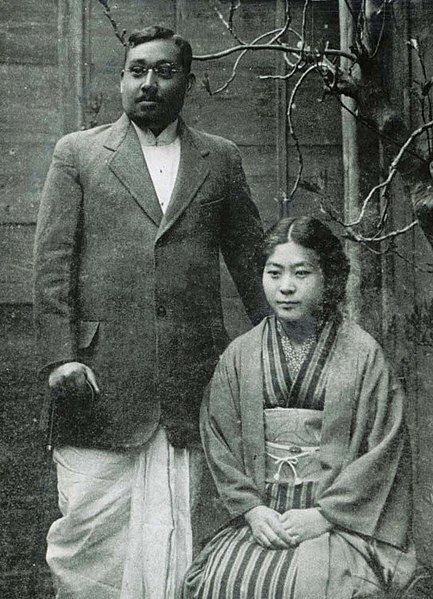Rash Behari Bose: A Brave Revolutionary Who Fought for India’s Freedom
Rash Behari Bose, an unsung hero of India’s independence struggle, was one of the most daring revolutionaries to challenge British rule. His life was a saga of courage, resilience, and commitment to the cause of India’s freedom. Born on May 25, 1886, in Subaldaha village, in present-day West Bengal, he became a central figure in the Indian freedom movement through his involvement in numerous revolutionary activities. His contributions and sacrifices, although often overshadowed by more prominent leaders, played a pivotal role in India’s eventual liberation from British colonialism.
Early Life and Education
Rash Behari Bose was born in a humble Bengali family. His early education took place at a local school in his village, where he demonstrated an aptitude for studies. However, his heart was always drawn to the cause of freedom, and he found inspiration in the writings of Indian nationalist leaders like Swami Vivekananda and Lala Lajpat Rai.
In his youth, Rash Behari Bose witnessed the widespread unrest and discontent against British rule, which fueled his revolutionary spirit. Despite having the opportunity to pursue a conventional career, he chose to dedicate his life to fighting for the independence of his country.
Entry into the Freedom Movement
Rash Behari Bose’s journey into the Indian independence movement began in his early 20s. In 1907, he became associated with the revolutionary group, Anushilan Samiti, which had been actively involved in fighting British imperialism through armed resistance. This marked the beginning of his engagement in revolutionary activities.
He became known for his association with prominent revolutionary leaders like Bipin Chandra Pal and Subhas Chandra Bose, with whom he shared a vision of an independent India. His role in the struggle against British colonial rule was significant not only for his strategic contributions but also for his daring actions.
Key Revolutionary Activities
Rash Behari Bose is remembered for some of his key revolutionary acts, including his role in the planning of the assassination of key British officials and his participation in underground activities. His name became widely known after the 1912 attempt on the life of the then Viceroy of India, Lord Hardinge, when he played a key role in organizing the attack.
However, it was during the First World War that Rash Behari Bose’s activities took a more international turn. After fleeing to Japan to escape British arrest, he began collaborating with the Indian National Army (INA), which was formed to fight against British rule with the help of Japanese forces.
Role in the Indian National Army (INA)
Rash Behari Bose’s legacy is closely linked to the Indian National Army, which was led by Subhas Chandra Bose during World War II. Rash Behari Bose played an instrumental role in its formation. Initially, Rash Behari Bose worked to mobilize support for the INA in Japan and other Southeast Asian countries.
He took on the crucial task of strengthening the alliance between the Indian revolutionaries and the Japanese. He successfully organized the formation of the first INA contingent and served as its leader before Subhas Chandra Bose took charge in 1943. His contributions helped lay the foundation for the eventual rise of the INA, which became a significant force in India’s freedom movement.
Rash Behari Bose’s support for the INA was instrumental in bringing attention to the cause of Indian independence and played a crucial role in garnering international support. His association with the INA, though short-lived, had a lasting impact on the way the world viewed the Indian independence struggle.
Final Years and Legacy
After his retirement from the INA, Rash Behari Bose lived in Japan for the rest of his life, where he continued to advocate for Indian independence. Despite his efforts and sacrifices, he never returned to India as a free man. He passed away on January 21, 1945, in Japan at the age of 58.
Rash Behari Bose’s contributions to the Indian freedom movement were significant but largely underappreciated during his lifetime. His strategic vision, courage, and determination to challenge the British empire from afar played a vital role in shaping the course of India’s struggle for independence.
Important Contributions and Impact
- Revolutionary Leadership: Rash Behari Bose was a key leader in the armed struggle against British colonial rule, organizing resistance movements and attacks on British officials.
- Indian National Army: His early involvement in the formation of the INA helped lay the foundation for Subhas Chandra Bose’s leadership, which later played a critical role in India’s fight for independence.
- International Collaboration: Rash Behari Bose’s ability to collaborate with international powers like Japan showcased his foresight and understanding of the importance of external alliances in the quest for India’s freedom.
- Underground Movement: He played a crucial role in underground revolutionary activities, organizing cells and spreading nationalist ideas in regions that were under British control.
- A Visionary Revolutionary: While his contributions were largely overshadowed, his visionary leadership in the early stages of the INA contributed significantly to the eventual liberation of India from British colonial rule.
Frequently Asked Questions (FAQs)
1. What was Rash Behari Bose’s role in the assassination of Lord Hardinge? Rash Behari Bose was one of the key figures behind the 1912 assassination attempt on Lord Hardinge, the then Viceroy of India. Though the attempt failed, it marked him as a significant revolutionary leader in the Indian freedom movement.
2. What did Rash Behari Bose do in Japan during his later years? Rash Behari Bose lived in Japan during the latter part of his life and continued to work towards India’s independence. He was instrumental in organizing the Indian National Army (INA) and gaining Japanese support for the Indian freedom struggle.
3. How did Rash Behari Bose contribute to the Indian National Army? Rash Behari Bose helped in the formation of the INA by forging strategic alliances, especially with Japan. He provided crucial leadership and laid the groundwork for INA’s eventual fight against the British.
4. What was the significance of Rash Behari Bose’s contributions to the freedom struggle? Rash Behari Bose’s contributions were critical in the initial phases of the armed struggle against British colonialism. He helped unite revolutionaries, organize attacks on British officials, and work towards the formation of the INA, all of which had a long-lasting impact on India’s fight for independence.
Conclusion
Rash Behari Bose’s life is a testament to the power of perseverance, bravery, and unwavering commitment to the cause of independence. Although his name does not resonate as loudly as other leaders, his contributions to the Indian freedom movement are invaluable. His leadership in the formation of the Indian National Army and his courageous activities against British rule have cemented his place in Indian history as one of its true unsung heroes.










